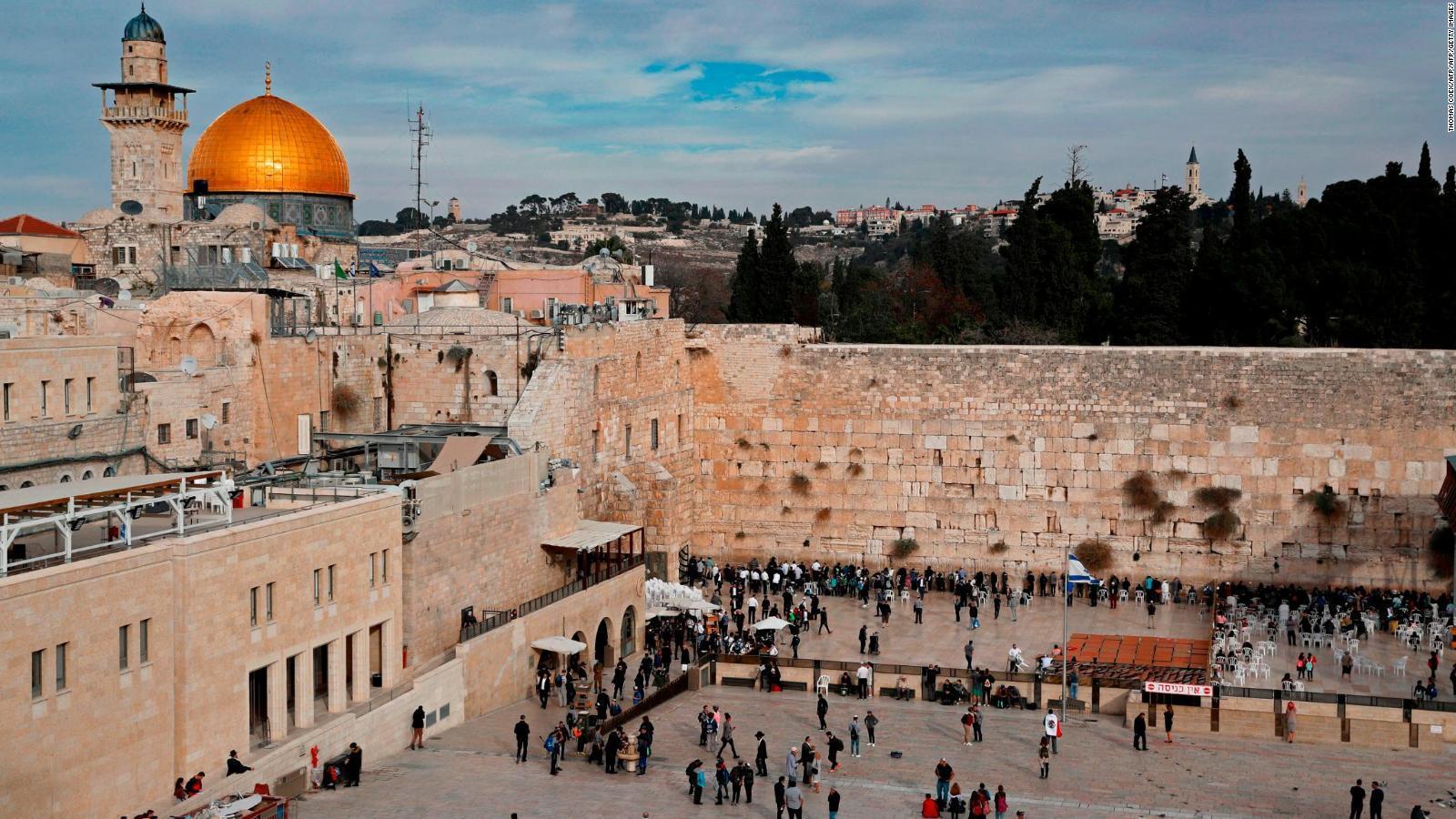
Turkey will gear up diplomatic efforts to increase the number of countries recognizing Palestine as a state and to strengthen its economy as part of a three-phase roadmap for its Jerusalem bid following a U.N. General Assembly vote that overwhelmingly voted against Washington’s recognition of the holy city as Israel’s capital.
According to Turkish officials, Turkey’s roadmap consists of the following steps:
- Turkey will launch fresh diplomatic initiatives to increase the number of countries that recognize Palestine as a state and East Jerusalem as its capital. Currently, 137 countries recognize it as a state, and the 57-member Organization of Islamic Cooperation (OIC) declared East Jerusalem as the capital of the State of Palestine. - Efforts for the protection of the status of the Haram al-Sharif, one of the most sacred holy sites in Islam, will be put forth. - Financial funds, particularly from the Islamic Development Bank, will be gathered to strengthen the economy of Jerusalem and the Palestinians. A close cooperation with Jordan will be provided to this end.
An emergency summit of the OIC, presided by the term president Turkey, was held on Dec. 13 in Istanbul to recognize East Jerusalem as the occupied capital of the State of Palestine in reaction to U.S. President Donald Trump’s unilateral recognition of Jerusalem as the undivided capital of Israel.
Immediately after the Istanbul summit, the U.N. General Assembly convened and voted by a majority of 128 votes to denounce Trump’s move and to focus on a two-state solution for the Israeli-Palestinian conflict.
Turkey’s expectation from the U.S. is to withdraw its Jerusalem decision and cancel plans to move its embassy from Tel Aviv to Jerusalem, Turkish officials have said.
Turkey has been in contact with the U.S. over these issues through Foreign Minister Mevlüt Çavuşoğlu and President Recep Tayyip Erdoğan’s chief foreign policy advisor, İbrahim Kalın, they said, adding that no communication with Israel on the issue has been conducted.
Turkey urged US before Trump’s move
The Turkish officials also said Turkey had made diplomatic communications with the U.S. immediately after being informed about Trump’s controversial move on Jerusalem early December.
Kalın spoke over the phone with U.S. National Security Advisor Gen. Raymond McMaster to ask whether Trump would sign a document on the relocation of the U.S. embassy from Tel Aviv to Jerusalem.
When McMaster confirmed Trump’s intention to sign the decree, Kalın reportedly said: “That would be a big mistake. Not only the Islamic world but the entire world would react against it. Can’t you see this?”
According to officials, McMaster insisted that the move would contribute to the peace process between the Israelis and Palestinians and vowed they would not step back.
“How can this move contribute to peace? If you plan this as the first step of the process, you should know that it would be a dead end,” Kalın reportedly replied.
Strategic diplomacy
Following the phone conversation, a strategic diplomacy was launched by Ankara under the coordination of Çavuşoğlu and Kalın, who informed Erdoğan about the developments.
“We will declare that we don’t recognize the U.S. decision if this is what they are up to. We will immediately gather the OIC for an emergency summit and we will take the issue to the U.N. Let’s begin our talks,” Erdoğan had instructed, before Trump was set to sign the decree, officials said.
At this stage, Kalın suggested to Erdoğan that he should speak with Pope Francis as Jerusalem is also a sacred city for Christians. The telephone conversation between the two occurred while Erdoğan was in Greece on Dec. 7.
Pope Francis shared Erdoğan’s view on Trump’s move and expressed that he was also concerned. Erdoğan also invited him to the OIC summit in Istanbul but the Pope had to decline the invitation due to his busy schedule. The Pope said he would support the bid with his statements.
Erdoğan-Putin dialogue on Jerusalem
Days after Trump’s move, Erdoğan met Russian President Vladimir Putin in person and then also held a phone conversation with him to get his support for the OIC summit. “This summit is very important. Usually, we are represented at OIC meetings by our ambassador but this time we will send a deputy minister,” Putin told Erdoğan.
Kalın called McMaster on Dec 13
On Dec. 13, Kalın and McMaster held another phone conversation after the U.S. national security advisor claimed Turkey and Qatar were sponsors of radicalism in the Middle East, a statement he later had to correct. During the conversation, McMaster asked about the results of the OIC summit.
“What were you expecting? A very strong resolution was adopted. Jerusalem united everyone around the table. We denounced your decision and we began a process at the U.N.,” Kalın told him, according to the officials.
Ankara predicted at least 140 votes for Jerusalem
Ankara initially predicted 140 countries would vote against the U.S. at the General Assembly on Dec. 21. But threats and pressure from Trump, who said he would cut off aid to countries that would vote against the U.S., caused a decline in the number of votes.
In New York, Çavuşoğlu and Turkey’s permanent representative at the U.N., Ferdiun Sinirlioğlu, were in close contact with Ankara and informed of the atmosphere before the vote. They told Ankara before the vote that the resolution would get the required majority - two third of the votes - to denounce the recognition of Jerusalem as the undivided capital of Israel.
No peace process possible without US
In the meantime, Ankara is also awaiting a political climate to re-launch a peace process between Israel and Palestine to settle a two-state solution, daily Milliyet reported.
One of the options Turkey is now considering is cooperation between the OIC and the European Union, as Palestine declared that it rejects having the U.S. involved in any kind of peace process. But Ankara is aware that a peace process without the U.S. cannot be conducted as it is the only country able to exert pressure on Israel.